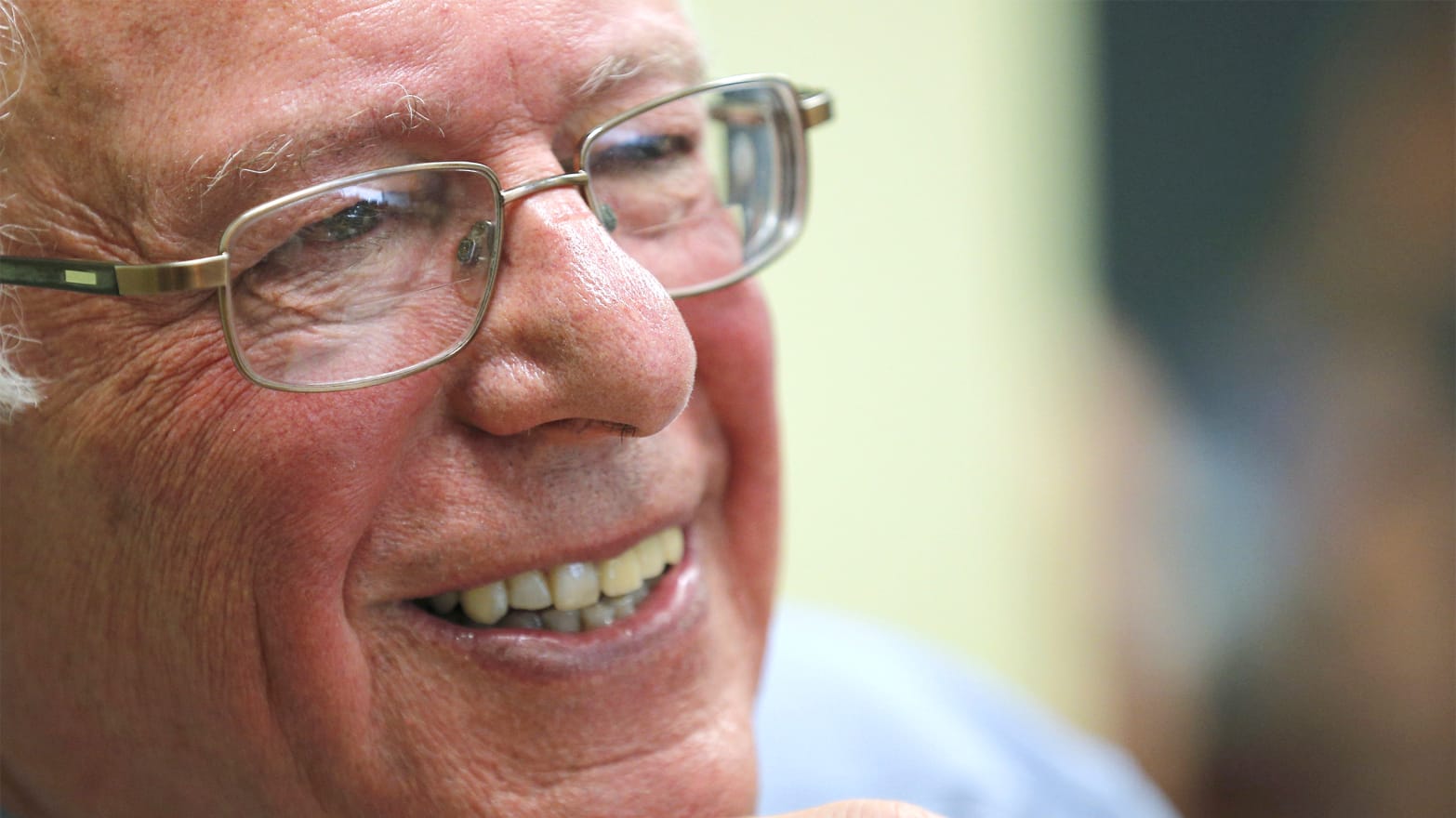So Bernie Sanders is lighting it up in Iowa, reports the Times, knockin’ ’em dead, outdrawing Jeb Bush and all the Republicans.
The excitement is palpable. And yet, I will make a prediction to you now. Sanders will win one primary: Vermont. If I’m proven correct he will have done exactly as well as another Vermonter, Howard Dean, who entered the primaries in 2004 positioning himself to the left of the major candidates. He forgot about the importance of field organizing, got chewed up in Iowa over a scream (unfairly so, actually), and after being the favorite for about two weeks in December 2003 went on to enter 31 primaries and win just the one, in his home state.
What is it about Vermont? Is this just coincidence that Dean and now Sanders have emerged as the most prominent and credible left-flank candidates of recent times? Probably not.
Vermont’s demographic changes in recent years, the way counter-cultural types have flocked to places like Burlington, are unique; neighboring New Hampshire is a very different place, and even Massachusetts, while liberal, features a different kind of liberalism, at once more blue-collar (think Fall River and Lowell) and more pointy-headed (all those universities). In a sense, what Texas is to the GOP, Vermont is to the Democrats: the party’s ideological ground zero.
This is not of course to say that Sanders has anything in common with Ted Cruz beyond the fact that both are U.S. senators. For one thing, if Cruz is drawing crowds upwards of several hundred in Iowa, he’s keeping it a pretty good secret. And the fact that he’s not drawing such crowds reflects the most obvious difference between the two, namely that Cruz says lots of unpopular crazy extremist things, and Sanders is mostly just saying things that are probably a little out there in terms of the Washington conventional wisdom but are not in reality crazy at all, like reining in the power of big banks.
Sanders makes a great foil to Clinton because he is everything liberal activists believe (sometimes fairly, sometimes unfairly) she is not. He’s blunt, she’s circumspect. He doesn’t care what anyone thinks, she’s uber-cautious. On a debate stage with her and Martin O’Malley, Sanders can just tee off and say exactly what the rank and file wants to hear in ways that neither Clinton nor the former Maryland governor can.
Liberals love this because they don’t get much of it in political life today. On the Republican side, the candidates fall over themselves to prove how conservative they are, and indeed the word “conservative” flies out of their mouths every 18 seconds. Democrats are usually terrified of speaking that bluntly, so when one does—and Sanders isn’t a Democrat, but let’s not get technical—liberals swoon. So he’ll generate crowds and enthusiasm and he’ll press Clinton on some issues. All to the good.
He probably won’t have the money or the field operation—hers, in Iowa, is already formidable—to challenge her in a serious way. But the great unanswered question here is not about him, but about Clinton, to wit: How deep is the dissatisfaction with her among liberal Democrats?
If you follow the political pronouncements of the liberal activist class closely, you might think it’s very deep indeed. The whole Draft Warren movement, led by MoveOn.org, is (or do we now say was?) predicated on the conviction that Clinton is certain to sell the liberal base out to Wall Street. One hears this a lot among insiders, and if this is a conviction that is widely shared by rank-and-file Democrats, then Sanders can certainly exceed my expectations.
But I just don’t think the distrust runs that deep. I have before me here a Gallup poll from March showing that Clinton is rather popular among Democrats and the Democratic-leaners questioned in this surveyed. Her favorable-to-unfavorable rating was 79 to 13 percent, or a multiple of six. Sanders’s numbers were 21 to 8. (Interestingly, Elizabeth Warren’s were 37 to 9, a multiple of just four, and with a surprisingly high 53 percent having no opinion.)
Seventy-nine to 13 isn’t what I’d call dissatisfaction. The key fact is that the 13 are overrepresented in the chattering class and among the most committed party activists. It’s always been this way among the group we might call super-insiders, the people who blog and tweet and are willing to do things like drive 70 miles across the plains on a weeknight to go see an insurgent candidate whose realistic chance of becoming president is fractional.
The Clinton appeal to this set has always been limited. I can’t pinpoint exactly why it is. For starters, the Clintons never curried their favor or flattered them. In her case, of course, a lot of it has to do with her support for the Iraq war (which Bill backed too, to the extent that his position mattered). More broadly, the Clintonian issues palette has never jibed very closely with the special passions of this plugged-in activist class I’m talking about.
Take for example net neutrality under Title II, which is of great interest to this group. Clinton endorsed net neutrality after Barack Obama made his announcement, but she’s never been associated with the issue, and even in the act of endorsing Obama’s position, she sounded pretty meh about the whole thing: “As I understand it, it’s Title II with a lot of changes in it to avoid the worst of Title II regulation. It’s a foot in the door ... but it’s not the end of the discussion.”
It’s easy to get the misimpression that there’s more rank-and-file resistance to Clinton among Democratic voters than there actually is. And the press of course doesn’t like her and wants a race. All this will work to Sanders’s benefit. A significant number of Democrats may want to send Clinton a warning shot, keep her pivoting leftward; but the idea that there’s a large bloc of Anybody But Hillary Democrats out there is just a fantasy.

